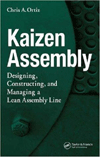Whether colorful cell phones and the latest handheld personal organizers changed the world isn’t relevant. The point is that for the companies that introduced them and for the people that use them, they make a difference. And, says Issues & Trends, that’s a potential difference that many businesses are missing because more than half of the population is not part of the process.
Only one out of 10 engineers today is a woman, and although some manufacturing companies are actively recruiting women engineers, those companies are in the minority. "With the projected shortage of qualified engineers, this disparity threatens the ability for businesses to compete in a global marketplace," says Greg Kruger, vice president of Kelly Engineering Resources.
Writing in The Wall Street Journal recently, Sharon Begley notes that engineering bachelor’s degrees peaked in 1985 at 77,572 and dropped to 60,914 in 1998. Companies dependent on engineers wonder whether this 17-year slide in engineering graduates will be arrested, let alone reversed.
Historically, women have not taken the high school math and science courses that are the foundation for engineering. In addition, the first 2 years of the engineering curriculum are typically packed with math, physics, chemistry and other basics that tend to be unappealing andworse yetnot indicative of what the engineering profession is really all about. Begley cites the cases of two women engineering students who confronted this; one left mechanical engineering, graduated with a B.S. in math and is pursuing a Ph.D. in education. The other is staying the engineering coursefor now.
Kruger believes that the primary function of engineering is design, and women bring a different perspective to the design process. By attracting women engineers, companies better understand their customers’ needs, improve product designs and compete more effectively in the marketplace. Companies are also adopting a more collaborative process, a change that plays to a woman’s strengths.
In the past, it was understandable why engineering was essentially a male-exclusive profession. And there’s no doubt it will remain a male-dominated profession for the foreseeable future.
But today, the blunt reality is that a nation that depends so heavily on engineering for its way of lifeand for its domestic security!must not fail to encourage half of its potential engineering talent to even consider the profession. This isn’t an issue of "political correctness," nor is it an exercise in pointing a finger of blame at anyone. We simply can’t afford to overlook a resource that is invaluable to our nation.





